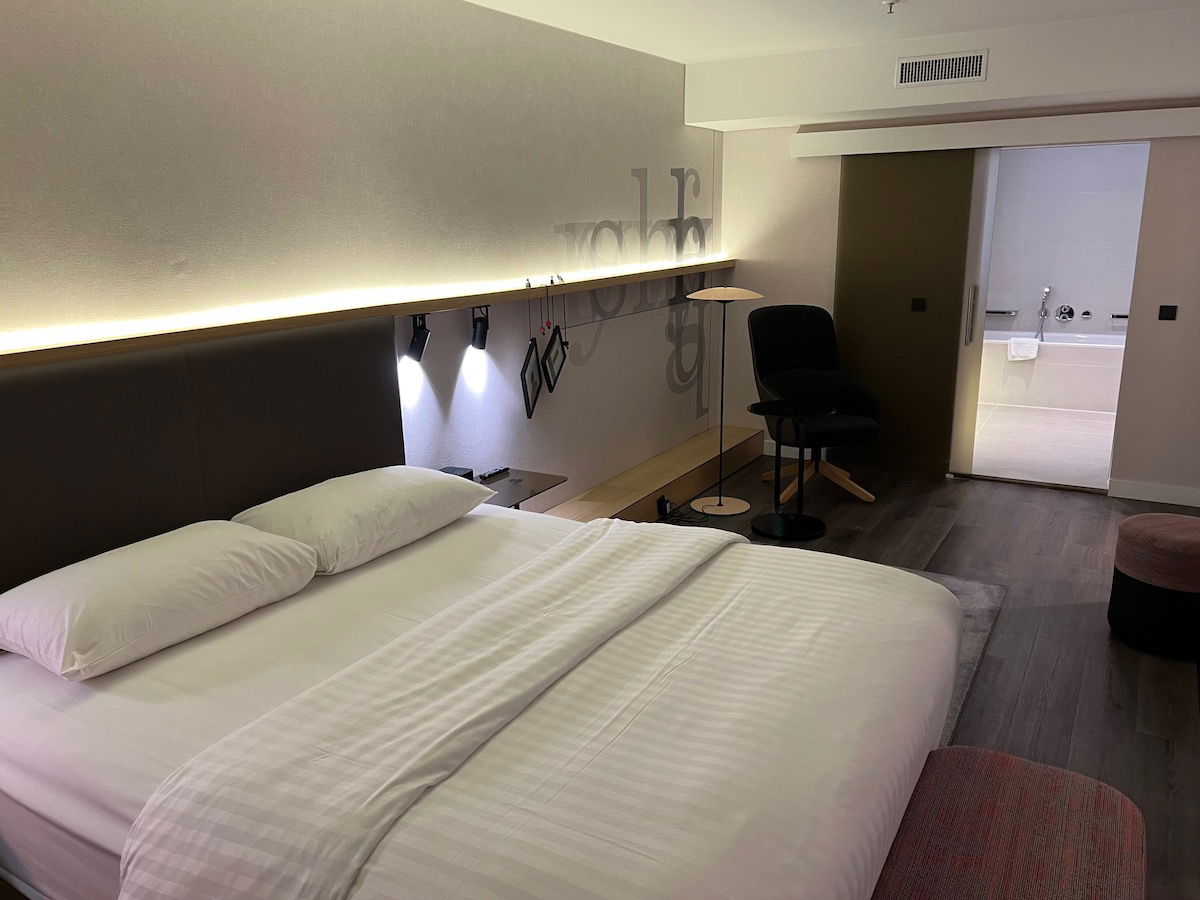Just over three years ago, global travel came to a standstill due to the pandemic. The future of travel was uncertain, and virtually all travel brands showed a huge amount of flexibility with cancelation policies, in hopes of making people confident enough to book travel.
Well, travel has rebounded fast, and in many markets leisure demand is way higher than it was pre-pandemic. That’s despite the fact that coronavirus hasn’t actually gone anywhere, but rather society at large just approaches it differently.
With that in mind, I wanted to address a question I frequently get — if you test positive for coronavirus prior to travel, should you expect hotels to be flexible beyond the standard cancelation policy? While many airlines have permanently adjusted their policies to be more generous, that’s not really the case with hotels.
In this post:
Don’t expect hotels do be as flexible as before
While there’s not going to be any “one size fits all” answer, generally you shouldn’t expect that hotels are going to be particularly flexible with waiving cancelation fees if someone tests positive for coronavirus. This far into the pandemic, this is a risk we’re all aware of, and it’s clear that most people want to travel in spite of that.
I don’t think that’s unreasonable on the part of hotels. A vast majority of people are returning to their pre-pandemic lives (perhaps with some lifestyle changes). Before the pandemic, I don’t think most people would have expected a hotel to waive cancelation fees if you were sick before your trip, and I think that’s how most hotels are approaching things once again.
Heck, I’ve seen some hotels even list in their terms that the cancelation fee won’t be waived even if a traveler tests positive for coronavirus.

Some hotels go above and beyond, though
My take is that there’s no harm in asking a hotel if there’s any flexibility in the event that you can’t travel, but you also shouldn’t reasonably be upset if they say no. That’s true whether you’re booking a one night stay at an airport hotel with a one night cancelation policy, or are booking a one week stay at a ski resort with a 90 day cancelation policy.
For example, I’ve sometimes not made it to a hotel due to travel disruptions. Some hotels generously waive cancelation fees for that night, while others don’t. Of course I’m delighted if they say yes, but I also can’t fault them for saying no, since that’s likely lost revenue for them.
As an alternative to the cancelation policy being waived, you could also ask if the hotel is willing to extend you a credit for a future stay, or let someone else stay in your place. Again, I wouldn’t expect a hotel will definitely say yes, but it’s the closest thing to a compromise, since the hotel doesn’t lose the revenue.

What’s the best way to mitigate risk in this regard?
Not all trips are created equal — for most people, a one night airport hotel stay probably isn’t as important as a big anniversary or birthday trip that you’ve been looking forward to for a long time.
If a trip is really special and/or costly, I’d prioritize taking precautions to avoid being sick ahead of the trip. I’ve taken some special trips since the start of the pandemic, and in each case I minimized my potential exposure to getting sick ahead of travel. After all, that’s the easiest way to minimize your risk of having to cancel due to being sick. Of course it’s not foolproof, though, and it’s not practical for everyone.
One other option is travel insurance. Travel coverage offered with credit cards typically won’t cover a cancelation due to coronavirus. However, there are travel insurance policies out there that would cover you for situations like that. Personally I’m not a fan of these policies, unless the trip is so expensive that you’d be devastated if it didn’t work out.
I’m just not a huge fan of discretionary insurance policies, assuming I can afford what I’m purchasing without it putting too much of a financial burden on me. “Cancel for any reason” travel insurance policies tend to be expensive, and other policies tend to have a lot of fine print.
Personally I’ll take my chances. If I at one point have to throw away a huge trip due to getting sick, that would suck, but it would likely be cheaper than constantly paying for insurance policies. Insurance companies are in the business of making money with selling policies, and they typically come out ahead.

Bottom line
It’s not 2020 anymore, so don’t expect that hotels will waive their cancelation policies if someone in your traveling party tests positive for covid. Whether right or wrong, hotels usually treat coronavirus like anything else that could impact your ability to show up for a hotel stay.
It can’t hurt to ask if there’s any flexibility in these kinds of situations, but also don’t expect it.
If you’ve had to cancel a trip last minute recently, what was your experience with hotel flexibility?





Cancelled a Marriott reservation 5 hours passed their 72 hour cancellation window. My son developed Covid. I took his test in the night and called the hotel at 5:43 am. They refused to waive the fee. This was a Huge mom/son trip. Saved and planned for a long time. Had to cancel everything. It was really sad my son got sick, our trip was canceled and we were charged $700 for the cancellation fee. A...
Cancelled a Marriott reservation 5 hours passed their 72 hour cancellation window. My son developed Covid. I took his test in the night and called the hotel at 5:43 am. They refused to waive the fee. This was a Huge mom/son trip. Saved and planned for a long time. Had to cancel everything. It was really sad my son got sick, our trip was canceled and we were charged $700 for the cancellation fee. A lot of savings gone. We will save up again, but never again with the Marriott.
Two points to add:
- There are also year-long travel insurance policies that cover you for all trips
- Consider what your health insurance covers (and maybe the cost of healthcare in the destination). If you have US employer-based health insurance, emergency medical expenses outside the US are probably covered, with the usual caveats of deductibles and co-insurance. Medicare doesn't cover anything abroad so if you are covered through Medicare, it might be...
Two points to add:
- There are also year-long travel insurance policies that cover you for all trips
- Consider what your health insurance covers (and maybe the cost of healthcare in the destination). If you have US employer-based health insurance, emergency medical expenses outside the US are probably covered, with the usual caveats of deductibles and co-insurance. Medicare doesn't cover anything abroad so if you are covered through Medicare, it might be good to look into travel insurance to cover ER visits.
Must be nice to not have to worry about a $400+ lost amount of money. Travel insurance for $99 or less would be better than losing that, IMO.
I get it from a hotel POV... but Hotels have to accept... If people are sick - and hotel wont refund - If one thinks they will feel better during the trip, most people will show up and spread COVID/FLU/etc.
Really from a hotel POV... how many people make reservations and cancel last minute? 1% or less? Isn't it worth it for the goodwill and extra bookings with a generous refund policy.
The problem I have with this is that it is one-sided, in the hotel's favor. I understand about the hotel and their cancelation policy, but much like a cold vs a flu people have had different side effects of COVID. For some it was much more than a cold and I don't think most people would travel with a fever, for example. May be the credit card "airline" credits could be expanded to cover such expenses.
Insurance begins to make sense when you look at lexpensive cruises. We took two bucket list cruises from Buenos Aires - one to Antarctic and one to Rio Carnival with 15 days between to tour. Cruise lines do not refund much within the last 5 months and are a go/nogo proposition. The total cost was in the order of $40,000 so I insured for 50% assuming we'd make one or the other even if we...
Insurance begins to make sense when you look at lexpensive cruises. We took two bucket list cruises from Buenos Aires - one to Antarctic and one to Rio Carnival with 15 days between to tour. Cruise lines do not refund much within the last 5 months and are a go/nogo proposition. The total cost was in the order of $40,000 so I insured for 50% assuming we'd make one or the other even if we had covid (not expected being 5X vaccinated and careful).
Otherwise only emergency health makes any sense.
We’ve come to the end of any travel entity be it be hotels or airlines where customers can use testing positive for covid as a reason for curtailing a trip. Globally we have to recognise that it’s here to stay like common colds and flu, heck the UK and many other countries are seeing a new Spring covid strain wave sweeping through communities but it’s nots getting headlines as it once did. I have noticed...
We’ve come to the end of any travel entity be it be hotels or airlines where customers can use testing positive for covid as a reason for curtailing a trip. Globally we have to recognise that it’s here to stay like common colds and flu, heck the UK and many other countries are seeing a new Spring covid strain wave sweeping through communities but it’s nots getting headlines as it once did. I have noticed some airlines are offering “flex fares” which are not a change in travel class ie J being fully flexible VS upper and Z being least flexible, for an additional £200 on top of the lowest fare class you have the option for a full refund or change dates with fare differences to be paid if you can’t travel for any reason, I wouldn’t be surprised if hotels started to offer a similar option.
RE: I'm just not a huge fan of discretionary insurance policies...
Ben, I have a policy that covers all trips within a one-year period. I consider it very affordable ($630 a year for two people), and it avoids deciding whether you want to buy insurance per trip. What's your opinion about these kinds of policies?
Fair article. But it works both way. If there’s no cancellation policy, then I’m turning up covid +.
Most ppl wouldn’t cancel their trip for a mild cold pre-pandemic, so I presume that would be the expectation here too.
Exactly
Nor you should test